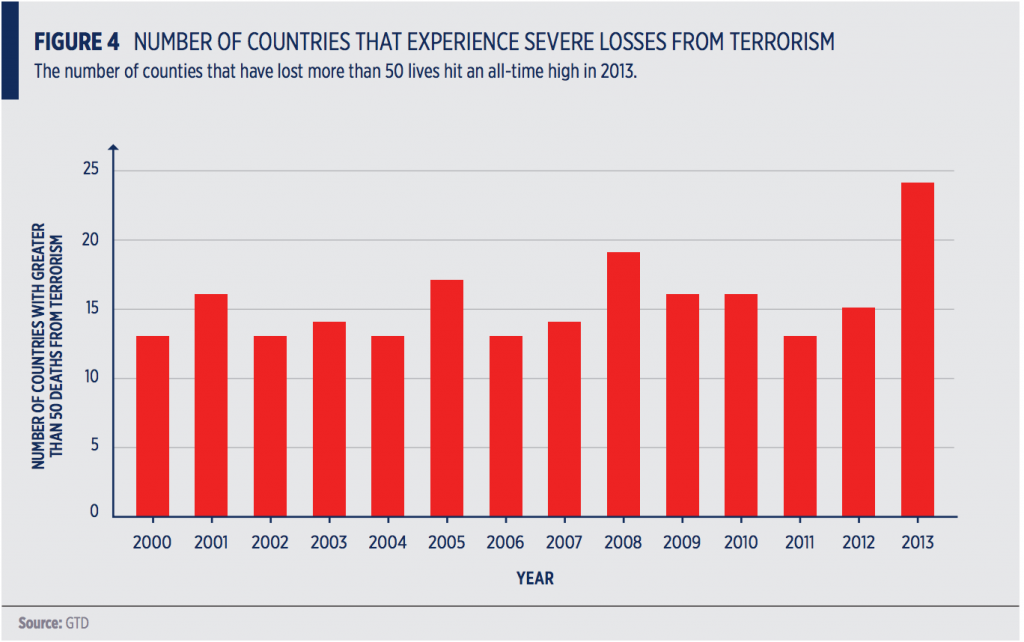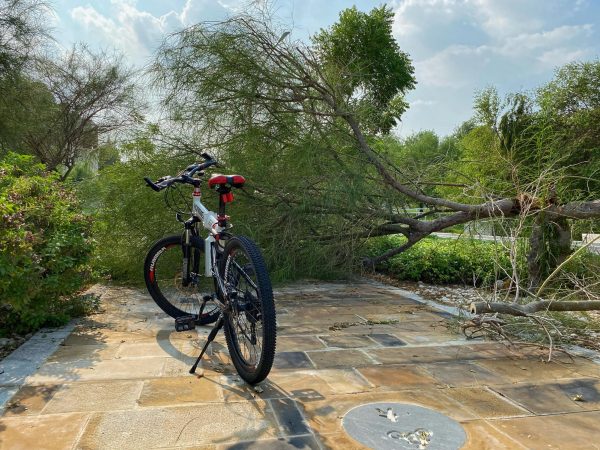Op-ed: Don’t Fly The French Flag on Facebook Just Yet

Persecution – Irving Norman 1950 Source: Art for a Change
On Friday night, my roommate and I threw casualty numbers at each other.
“Two!”, she yelled from her room. “Fifteen now!” I yelled back.
The numbers kept going up; 19, 89, till the total count came up in bold red letters: 129.
One hundred and twenty-nine people dead in Paris, halfway across the world from us. But they were not the only ones.
CNN claimed this was “the worst violence in France since World War 2,” but the statement sounds incomplete to me. The last five days have seen 43 dead, 239 wounded in Beirut, Lebanon, and at least 19 dead and 33 wounded in Baghdad, Iraq. This is some of the worst simultaneous violence the world has seen since the second World War, with violence provoked by ISIS in an attempt to rip up the very stitches that hold the fabric of humanity together.

The Global Terrorism Index Report for 2013 shows the massive increase in the number of countries that have experienced losses from terrorism. Lebanon, France, Iraq, Afghanistan and Russia have joined these ranks. The world is becoming a deadlier place everyday.
In the midst of all this chaos, I ask whether attacks like these are ever justified, on any people, for any religious or any political claim. The answer is a resolute no, of course for the simple reason that terrorism is an ideology that cannot carve a safe haven for itself in the folds of religion or politics. Put simply, taking lives is barbaric by anyone’s standards.
“I don’t think God would approve of such behavior. I imagine God as someone with a lot of love and compassion, and He would not want this,” said Rhytha Zahid Hejaze, junior at Northwestern University in Qatar.
When asked about ISIS and whether they could feel justified in their plans, Hejaze said that they definitely need help. They are brainwashed and misinterpret religion, because no religion would ask you to kill people.
The jihadist group claimed responsibility for the Paris attack on 14 Nov., in an online statement. According to CNN, ‘eight militants wearing explosive belts and armed with machine guns attacked precisely selected areas in the French capital.’ This led to an outburst online with the statement, “terrorism has no religion” being repeated and shared millions of times.
“Humanity and terrorism both know no religion,” said Taimur Ali, junior at the Georgetown School of Foreign Service in Qatar.
Ali said this should be an opportunity for Muslims to channel all their suffering and use it to be a source of support and compassion for the French. He has written about his views in more detail in an article for the Daily Times, Pakistan.
“Je suis Paris!” has became a popular status update on Facebook. Translated directly as “I am Paris”, it expressed deep support and empathy for the victims in France. And it started a social media war. Facebook also allowed users to add the French flag to their profile pictures. As soon as someone painted their picture red, white and blue, they were harangued; they were accused of being selfish, single minded and biased in their support. Other people assumed that because they appeared to be supporting Paris victims, that they were automatically excluding ones from other countries. The hashtag #IStandWithHumanity quickly replaced #IStandWithParis as a safe tactic against accusations. While people literally lost their lives in all corners of the world, other, living people fought online about which victims to mourn. They picked and chose specific disasters over the others.
“Any attack on an individual is an overall act on the sanctity of humans. If I choose to empathize with something that I’m aware of, that should be nobody else’s business,” said Ayeda Iftikhar, sophomore at NU-Q.
She changed her picture to include the French flag as soon as she heard about Paris, saying that mourning for some does not mean insult to other lives lost.
Many were enraged about the attacks; many were confused about which victims to support; many were sitting back and watching people argue with each other; most were blaming a biased world media that exploded with outrage at the Western Paris but not Eastern Beirut. Meanwhile, who was praying for all the victims together at once, in Beirut, in Paris, in Baghdad?
Sources:
http://www.visionofhumanity.org/sites/default/files/Global%20Terrorism%20Index%20Report%202014_0.pdf
http://www.dailytimes.com.pk/opinion/20-Dec-2014/looking-within-ourselves












